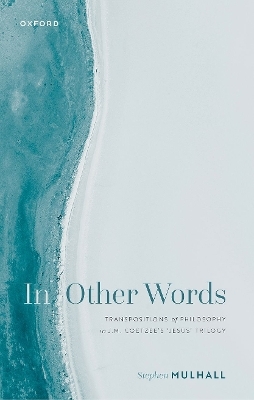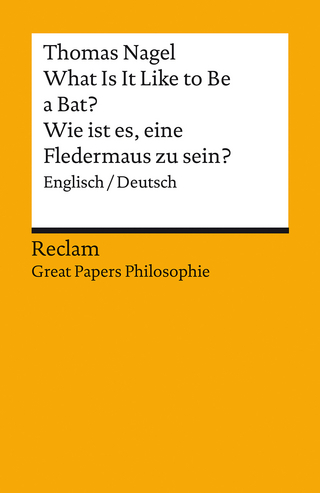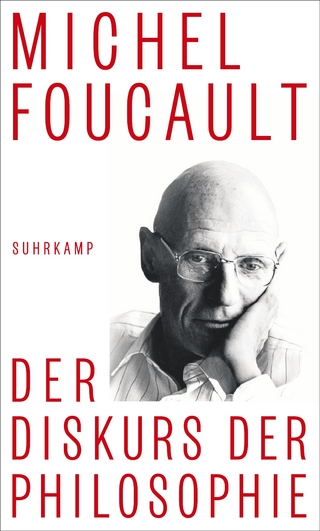
In Other Words
Transpositions of Philosophy in J.M. Coetzee's 'Jesus' Trilogy
Seiten
2022
Oxford University Press (Verlag)
978-0-19-286971-5 (ISBN)
Oxford University Press (Verlag)
978-0-19-286971-5 (ISBN)
Stephen Mulhall explores how J. M. Coetzee's 'Jesus' Trilogy engages with themes drawn from Wittgenstein's later philosophy, and how Wittgenstein's and Coetzee's thought relates to the critique of modernity elaborated in the work of Nietzsche, Heidegger, and Sartre.
J. M. Coetzee's 'Jesus' Trilogy extends and intensifies his long-term interest in engaging with a wide range of texts, themes and assumptions that help constitute the history of Western European philosophy. In this commentary, Stephen Mulhall extends his own earlier work on Coetzee's previous stagings of the ancient quarrel between philosophy and literature by identifying and following out various ways in which the 'Jesus' Trilogy activates and interrogates themes drawn from Wittgenstein's later philosophy. These themes include rival conceptions of counting and reading, the relation between concepts and wider forms of life, and the intertwined fate of philosophy, literature and religion in a resolutely secular world. In these ways, Wittgenstein's, and so Coetzee's, visions of the world disclose their uncanny intimacy with issues and values central to the critique of modernity elaborated in the work of Nietzsche, Heidegger, and Sartre.
J. M. Coetzee's 'Jesus' Trilogy extends and intensifies his long-term interest in engaging with a wide range of texts, themes and assumptions that help constitute the history of Western European philosophy. In this commentary, Stephen Mulhall extends his own earlier work on Coetzee's previous stagings of the ancient quarrel between philosophy and literature by identifying and following out various ways in which the 'Jesus' Trilogy activates and interrogates themes drawn from Wittgenstein's later philosophy. These themes include rival conceptions of counting and reading, the relation between concepts and wider forms of life, and the intertwined fate of philosophy, literature and religion in a resolutely secular world. In these ways, Wittgenstein's, and so Coetzee's, visions of the world disclose their uncanny intimacy with issues and values central to the critique of modernity elaborated in the work of Nietzsche, Heidegger, and Sartre.
Stephen Mulhall is Professor of Philosophy and Russell H. Carpenter Fellow in Philosophy at New College, University of Oxford. He has published many books on the intersection of art and philosophy, including The Self and Its Shadows: A Book of Essays on Individuality as Negation in Philosophy and the Arts and The Ascetic Ideal: Genealogies of Life-Denial in Religion, Morality, Art, Science, and Philosophy.
Introduction
Acknowledgements
Part One
Novilla: The Deviant Pupil
Part Two
Estrella: The Marionette
Part Three
Estrella: The Orphan
Bibliography
Index
| Erscheinungsdatum | 21.01.2023 |
|---|---|
| Verlagsort | Oxford |
| Sprache | englisch |
| Maße | 144 x 223 mm |
| Gewicht | 310 g |
| Themenwelt | Geisteswissenschaften ► Philosophie ► Philosophie der Neuzeit |
| Sozialwissenschaften | |
| ISBN-10 | 0-19-286971-X / 019286971X |
| ISBN-13 | 978-0-19-286971-5 / 9780192869715 |
| Zustand | Neuware |
| Informationen gemäß Produktsicherheitsverordnung (GPSR) | |
| Haben Sie eine Frage zum Produkt? |
Mehr entdecken
aus dem Bereich
aus dem Bereich


